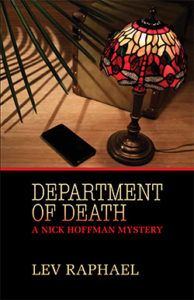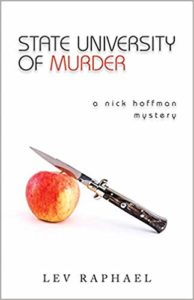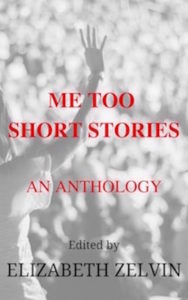A recent Persuasion opinion piece titled “Beware of Books” reminded me of the national uproar that was swirling around American Dirt by Jeanine Cummins before the pandemic. It aroused so much fury, it’s surprising that Congress didn’t launch an investigation, or that our 45th president didn’t try moving some Pentagon funds to build a wall around the book.
Its part-Hispanic author was pilloried far and wide for many things: ignorance, stereotyping, shallowness, whitewashing, appropriation, trauma porn, inaccuracy and saviorism. What seemed to infuriate some of her detractors most was Oprah Book Clubism, making-a-lot-of-moneyism, and movie dealism.
How dare this literary imposter tread on sacred Mexican/Mexican-American ground when apparently only someone of that ethnicity could handle the subject matter? Didn’t she realize that her book must represent the entire rich reality of Mexican culture, not just some sordid aspects of it?
There’s apparently a Geneva Literary Convention stipulating restrictions like these that I must have missed while I was publishing and teaching over the last few decades. Some of the strongest protests attacked her for daring to make money, lots of money, when there are apparently so many more deserving Latinx authors who were being ignored by publishers and readers and should be doing better. What a selfish woman…. A seven-figure advance? Outrageous!
Cummins was even vilified for what she said in her Acknowledgments, which must be a first. In a slash-and-burn review loaded with relentless invective, writer Myriam Gurbo scored Cummins’ gratitude: “In Dirt’s acknowledgements, Cummins announces her ignorance by thanking people for ‘patiently teaching me things about Mexico.’ She lists writers ‘you should read if you want to learn more about Mexico’ and lists a slew of authors.” I suppose the book’s type font was okay.
Memoirist Marcelo Hernandez Castillo even attributed super powers to the American Dirt author. As he put it, “The problem is the gross bastardization of the subject and the erasing of others who have written about this and are writing about it.” Imagine one author doing all that with one best seller.
I’ve been a published author for a long time and guess what? The world of publishing is wildly unfair and complaints about who does well and who doesn’t reek of jealousy and childishness. Books have their own karma, and grousing about how a certain book hits a cultural sweet spot while others languish is a total waste of time. Likewise besieging an author because she happened to write a popular or noteworthy book at the right time.
Let’s not forget that before the dirt hit the fan, the book won extraordinary pre-publication praise from some major American authors who seemed to agree with the publisher’s claim that “it is one of the most important books for our times.” Stephen King hailed it as “extraordinary: a perfect balancing act with terror on one side and love on the other. I defy anyone to read the first seven pages of this book and not finish it. The prose is immaculate, and the story never lets up.”
Ann Patchett opined that “American Dirt is both a moral compass and a riveting read. I couldn’t put it down. I’ll never stop thinking about it.” Tracy Chevalier advised that the novel was “essential reading for our time.” Latina author Sandra Cisneros was adulatory: “This book is not simply the great American novel; it’s the great novel of las Americas. It’s the great world novel! This is the international story of our times…a masterful work of great spiritual power.” John Grisham got very personal in his praise: “I strive to write page-turners because I love to read them, and it’s been a long time since I turned pages as fast as I did with American Dirt. Its plot is tight, smart, and unpredictable. Its message is important and timely…It is rich in authenticity.”
Well, all the sound and fury from the nay-sayers made me have to sample the book on Amazon, and I confess that I gave up at the end of the first chapter. The writing bugged me in various ways, partly because it seemed too sophisticated in describing what a kid was feeling. But what truly turned me off were the closing lines after a scene of major gunfire:
“Outside the window he hears Mama’s tentative footsteps, the soft scuff of her shoe through the remnants of something broken. A solitary gasp, too windy to be called a sob. Then a quickening of sound as she crosses the patio with purpose, depresses the keys on her phone.”
This is truly a hot mess. How does the kid know that the steps are tentative? What are the remnants of something broken? Is that poetic or a reference to objects of some kind? Bodies? Something else? And why would she be scuffing through them, why wouldn’t she avoid them? How can he possibly know that his mother is crossing “with purpose”? And finally, if he’s inside, how can he see her depressing the keys of her phone? Is he some kind of superhero?
Sloppy point of view kills a book for me because I lose faith in the author’s ability to tell a story deftly and clearly. In the many years I reviewed books for the Detroit Free Press, the Washington Post and half a dozen other newspapers, magazines, and radio stations, I learned to trust those warning signs. Maybe a novel like that gets better, but I’d rather not continue when a novel raises serious doubts in the very first chapter. Sorry, Mr. King.
The uproar over Cummins’ so-called lack of authenticity and every other publishing sin she apparently committed drowned out possible complaints about the prose in American Dirt. And for that I blame the author’s use of the present tense which as a reviewer I’ve seen hypnotizes far too many readers and reviewers. They seem to end up believing that the book they have in their hands is important and deep, perhaps even a cultural milestone.
Of course readers like those never got to hear this leaden prose in person because Cummins’ 40-stop book tour was cancelled. As quoted in the New York Times, the publisher cited the cancellation was due to “specific threats to booksellers and the author [and] we believe there exists real peril to their safety.”
Lev Raphael is the author of 27 books in genres from mystery to memoir.





